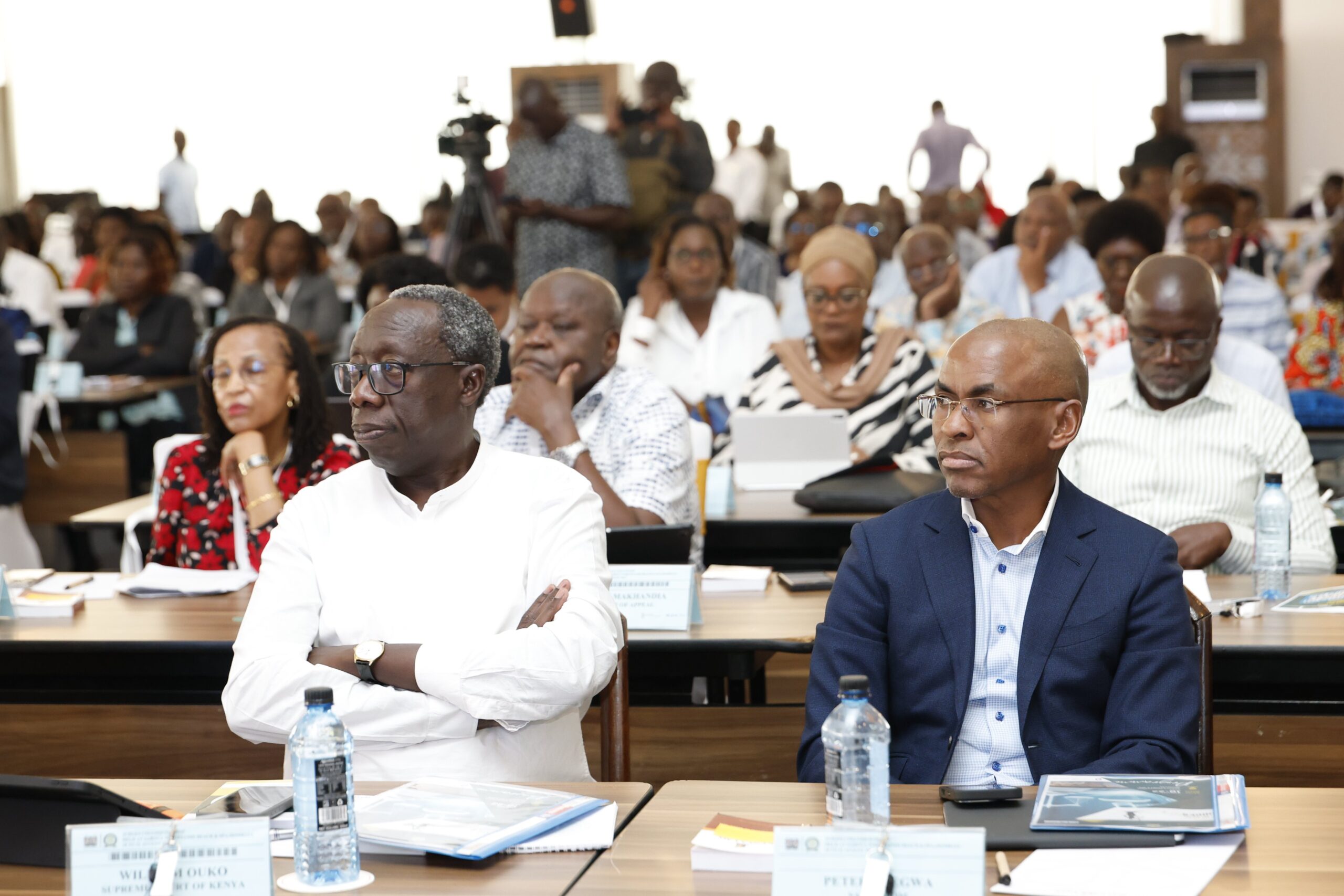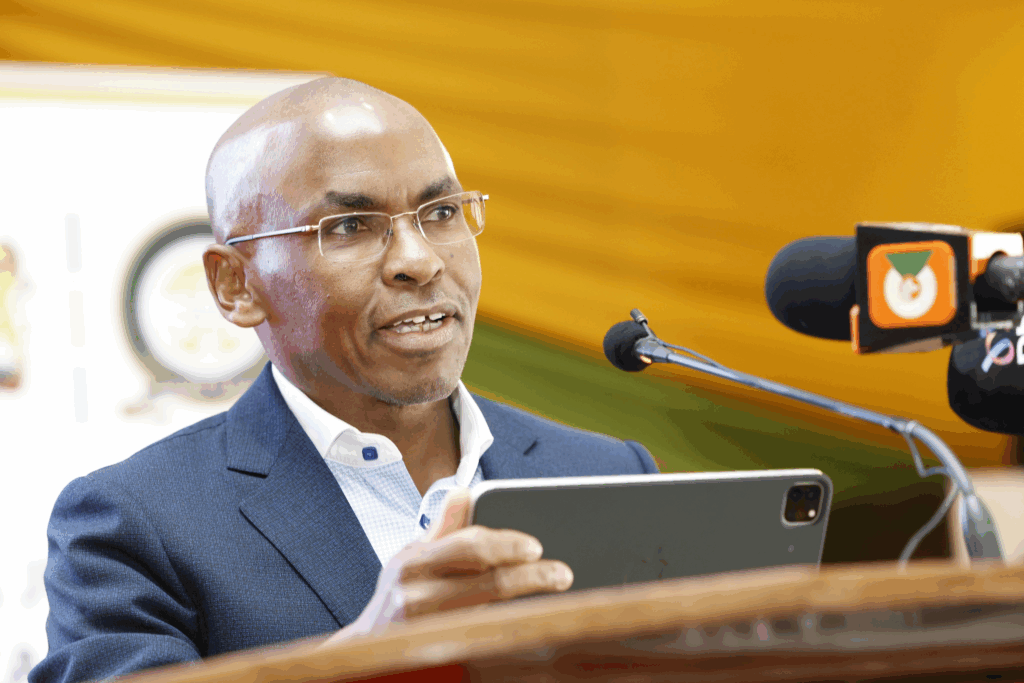
Tech support or surveillance? Safaricom’s entry into Judiciary digitization sparks trust deficit » Capital News
NAIROBI, Kenya, Aug 19 – A new partnership between Safaricom PLC and the Judiciary has sparked unease among Kenyans, with critics warning that the collaboration could pave the way for state overreach and surveillance disguised as judicial modernization.
Safaricom Chief Executive Officer Peter Ndegwa announced that the telco will support the Judiciary in integrating technology into judicial processes, including e-filing, virtual hearings, and digital case management.
He said the move aims to expand access to justice and make court processes more efficient and inclusive.
“Safeguarding justice means ensuring that decisions [are] delivered with a sound understanding of the technology landscape,” Ndegwa said Monday during the opening of the 2025 Judges Colloquium themed ‘Digital Transformation, Technology and Law – Tech Justice.’

“We have partnered with the Kenya Judiciary Academy to provide capacity-building in technical areas such as mobile communications and mobile money systems, equipping judicial officers with the insights they need to interpret cases involving technology.”
The partnership—also involving the Communications Authority of Kenya, GSMA, and other actors in the justice and technology sectors—has been framed as a step toward aligning Kenya’s judicial system with the realities of the digital era.
But skepticism abounds.
Critics argue that the arrangement risks blurring the lines between justice and state surveillance, particularly given Safaricom’s past accusations of colluding with authorities to monitor political dissent.
“The Safaricom–DCI–Judiciary pipeline is complete—for faster, effective, and seamless oppression,” one Kenyan wrote on social media.

Others questioned how a company that has faced numerous lawsuits from its own customers can be entrusted with safeguarding justice.
“How in the hell is this even possible? Safaricom has been sued across this country—what justice will you serve to those litigants who have filed complaints against it?” asked another critic.
Concerns are amplified by Kenya’s recent history. Public trust in law enforcement plunged after last year’s anti-Finance Bill protests, during which human rights groups accused state agencies of unlawful surveillance, enforced disappearances, and violent crackdowns.
Many of the victims were young activists who relied heavily on mobile phones and social media for mobilization.
Enabling State surveillance
Safaricom has consistently denied claims of collusion. In June 2025, the company issued a statement rejecting allegations that it shares customer information with state agencies without due process.
“We confirm that we have not received any court order requiring us to share customer information with any government agency,” the company said.
“[Safaricom] respects our customers’ privacy and adherse strictly to the country’s data protection laws. We do not share any customer data unless explicitly required by a court order.”
Despite these assurances, mistrust persists. Rights activists and a section of Kenyans warn that the Judiciary’s embrace of Safaricom’s digital infrastructure could deepen fears of surveillance, especially as the government continues to face accusations of silencing dissent.
“Safaricom again, with backend access. Tracking and tracing all background movements—silently, in broad daylight, without the Judiciary’s acknowledgement,” wrote Saddique Shaban, another critic of the deal.
Still, the Judiciary has defended the collaboration, insisting that leveraging technological advancements is essential to expediting and modernizing justice delivery.
Chief Registrar of the Judiciary Winfridah Mokaya said Kenya’s judicial system has become a model globally for embracing technology.
“The Kenya Judiciary has become a model among world nations as a driver of efficiency by harnessing technology in its processes. This is evident from the regular hosting of foreign delegations who come to benchmark with us,” Mokaya said, noting that over the last two years alone, Kenya has hosted seven high-level delegations focused on judicial technology.
“Technology now underpins nearly every aspect of our operations—from case tracking to registry services, judgment writing to communication.”
Kenya Judiciary Academy Director and Supreme Court Judge, Dr Smokin Wanjala, added that judges must keep pace with rapid technological advances to ensure their rulings remain both jurisprudentially sound and technologically relevant.
“On the institutional and operational front, the Judiciary is undergoing profound technological transformations, making it imperative for judges to understand how these developments shape and impact our work,” he said.
Visited 1 times, 2 visit(s) today